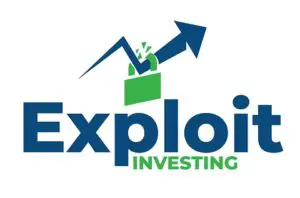
I Don’t know about you, but I’m always looking for ways to earn some extra cash. I used to think the only ways that you could make money in stocks was either by selling for a profit or relying on dividends. However, when I looked into it further, I discovered another interesting way to make money. It involves loaning out your shares for money!
Securities Lending Programs loan out shares to short sellers for a fee. The lender receives cash collateral in excess of the value of the security. This is to decrease the default risk. Stock lenders no longer receive favorable dividend tax status or voting rights.
Securities lending goes by many names according to the brokerage that you are using. For example the two brokerages that I currently use go by stock yield enhancement program and stock lending program. Sometimes you will also hear them referred to as fully paid securities lending.
How Securities Lending is Profitable
In exchange for loaning your shares out to short sellers you receive a small fee. This fee varies depending on how much demand there is for a specific stock. If you are investing in highly shorted stocks the demand can be fairly high.
Since you are holding shares in a company that you believe will produce a favorable outcome long term there is no harm in making some extra cash while you wait for that company and its operations to turn around. After all there are plenty of traders with a short term mindset that would love to sell your company for just a month or two.
This makes a lot of sense and works exactly the way a savings account would work. You are essentially lending out your money for some interest. This way the borrower gets cash now and you receive more cash in the future.
Share lending does not make sense for day traders who are going long as it will impact the direction of their short term and often volatile trades.
The great part about investing in small cap value stocks is that these share lending programs typically pay a premium for those shares. They are usually in higher demand with less supply. It may even be in shorter supply with dividend paying stocks and I’ll explain why later.
Not all share lending programs are created equal so its best to check and see how much your broker pays you to loan out your shares.
Finance Study Outlines Benefits and Downplays perceived Cons
Since share lending essentially loans your shares out to people who are shorting your particular stock it might seem a bit counterintuitive. In fact, the current war between Redditors and Wall Street shorts further fuels the false idea that share lending in some way reduces your returns in the long term.
In fact, in an Ohio State University study they found no adverse affects to the stock price when shares were made available to short. This study focused on small and mid cap stocks and the fund managed owned upwards of 5% of the total shares in some of the stocks in the study.
The study even went out of its way to focus on stocks with high loan fees that could be adversely impacted by larger supply shocks and in turn could affect total share price.
What is even more interesting is that the study describes an additional return of 1.5-2% per year in excess returns. This did not adversely affect the stock price. Although I do wonder how they really know for sure. But, if you think about it share price does not truly affect the value of stock. So if the underlying company is still generating profits than the shorts will eventually cover and share prices will rise.
This makes sense if you think about it in terms of the banking savings account that I described above. You are betting on an eventual turnaround in the future while the person shorting the stock is betting on short term pain and profiting from it.
The Dangers of Securities Lending Programs

Share lending programs are not completely without risk. There is always the risk of the company you are engaging in the share lending program with could go bankrupt. If they are securing your loan with cash collateral then you should be safe. It is also rare that shares are not returned to you.
However, this is currently being debated by the US government since shares have been double lent out creating a short ratio that is higher than the amount of shares that exist. So if you see excessive amount of shorting in a stock that you own you may want to reconsider your share lending agreement.
Alongside the above unlikely scenario there are also a few very real problems that could lose you money.
- Proxy battle voting.
- Dividend payments.
- Not being able to choose specific stocks.
The above are to be considered when deciding to engage in share lending. If you don’t want to give up your voting rights at a company then you should not loan out your shares as you lose your voting rights.
Dividends are also paid out differently. You will still receive those dividends, but they are considered cash-in-lieu and are not longer subject to preferable tax treatment. This could put you in a position where you are making less money from a higher tax liability. Your technically not losing money, but forgoing a greater return.
The good news is that you can jump in and out of the program when you like and avoid having your dividend taxed differently. This does become a problem for dividend investors who receive monthly dividend checks though. So it may be that you will want to only engage in securities lending in accounts where you don’t received dividends.
Which brings me to the third drawback. You can’t choose the stocks you want to loan out, but I think this can be remedied through the use of multiple brokerages. Many brokerages also allow you to bring in data from other brokerages so you have greater visibility on overall returns.
Webull and Interactive Brokers Share Lending Programs
In the past it seemed some unscrupulous company’s unknowingly loaned out your shares. Today however it seems that many have caught on and they have changed their ways. Currently I have to choose to engage in Webull or Interactive Brokers share lending programs.
Interactive Brokers is calls theirs the stock yield enhancement program and is a 50-50 split between you and the brokerage. Webull by comparison only offers you 15% of the total interest. I guess this is primarily a big reason why trades are free and how they make extra cash alongside selling order flow.
Share Lending for Large Cap Companies and ETFs
Share lending seems to be fairly popular among the ETF crowd, or at least that seems to be, by my perception. However, share lending is far less profitable than in the small and mid cap space. This is because the supply of shares and generally efficiency is much higher.
Many ETF share lending is used as a way to offset the costs associated with the management fees. Fees that are already pretty low in the ETF space. The problem is if you venture into active ETFs or small cap and international ETF’s the management fees also rise. This offsets any gain you may have for higher share lending fees.
This is why share lending is far more beneficial for individual stock investors in the small and mid cap space.
Bottom Line of Loaning Shares
The bottom line of loaning out your shares depends on your personal situation. I think the biggest drawback is the dividend tax status changing. But if you don’t invest in dividend stocks than it may be right for you. There are risks, but fortunately negatively impacting your share price is not one of them, at least over the long term.
